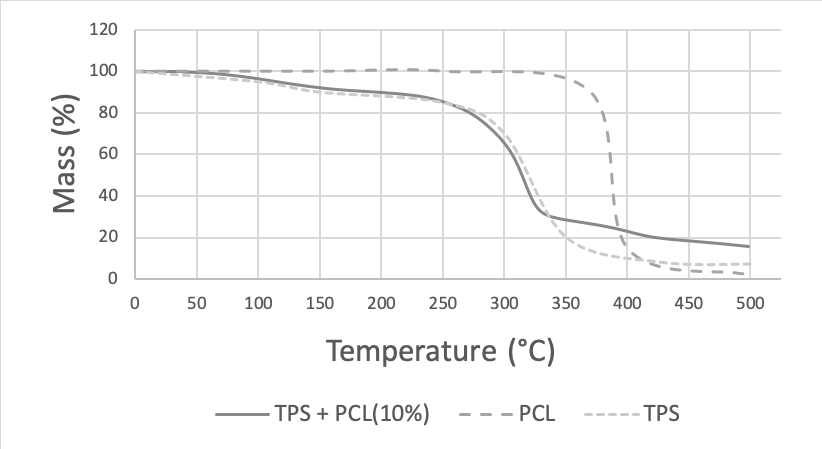 |
|
Films of a polymeric material based on cassava starch and poly ε-caprolactone (PCL) were made, with antioxidant properties. The influence of PCL and the antioxidant extract were evaluated, over the mechanical, thermal and chemical properties of the films. These were elaborated with, and without the antioxidant extract, which is rich in polyphenolic compounds. The films were conditioned at 20°C and 53% RH. The antioxidant extract was obtained from rice husk, by the hot water methodology in a high-pressure reactor, at 160°C and 10 bar. The total phenolic content of the extract was 12.27 (mEAG/100g dry matter), and the antioxidant activity had a value of 6691.95 (mETRX/100g dry matter). The extract was incorporated into a thermoplastic starch and poly E-caprolactone matrix, and films by compression molding were obtained. The antioxidant capacity was evaluated by DPPH method, where the lesser value was 1.54 (kg film/g DPHH) from EC50, it was found that the addition of PCL and antioxidant improved the general properties of the films.
Keywords: Antioxidant extract, cassava starch, poly ε-caprolactone, rice husk, thermoplastic starch.
|
|
 |

